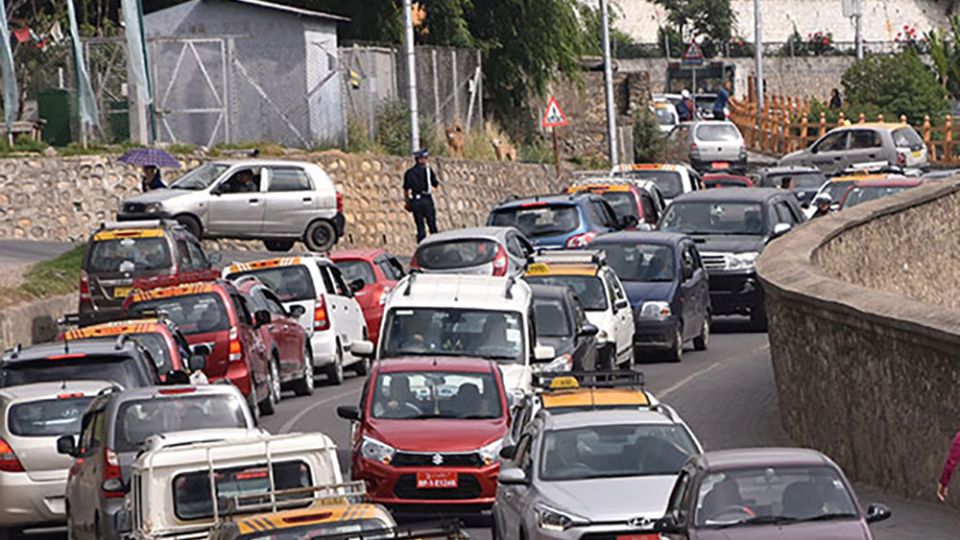August 19, 2024
THIMPHU – After two years, the government has decided to lift the moratorium on the import of vehicles in the country, which will come into effect from tomorrow (August 18) following improvements in macroeconomic indicators.
The finance ministry announced that the decision comes after a thorough review of the country’s economic health, which now shows promising growth. “The economic conditions that previously necessitated the imposition of the moratorium have improved,” stated the press release from the ministry.
The vehicle moratorium was initially introduced in August 2022 to safeguard foreign currency reserves and ensure macroeconomic stability. However, with the recent economic upturn, the government believes that resuming vehicle imports will further support economic expansion and enhance public confidence.
Under the moratorium, import of certain categories of vehicles such as utility vehicles valued at less than Nu 1.5 million and pickup trucks were allowed. Heavy machinery utilised in construction and agriculture activities and vehicles for the use and promotion of tourism were also exempted from the moratorium.
The previous government implemented the vehicle moratorium when the country’s foreign exchange reserve stood at USD 736.02 million in August 2022. The forex reserve has declined to USD 624.11 million as of June this year. The latest figure was not available.
The finance ministry stated that the government was confident that the lifting of the moratorium will further support economic expansion and boost public confidence with a positive outlook on economic growth as a result of prudent fiscal and monetary policies.
However, the ministry said that the government would continue to monitor the economic environment closely and make adjustments as needed to sustain the country’s positive trajectory.
“As the number of vehicles on our roads is expected to increase following the lifting of the moratorium, the government recognises the importance of maintaining the livability of our towns and cities, particularly the capital territory of Thimphu,” it stated. “The rapid growth in the number of cars poses challenges to urban life, including traffic congestion, pollution and strain on infrastructure.”
To address the challenges posed by increased vehicle numbers, such as traffic congestion and pollution, a differentiated vehicle registration system will be implemented specifically for the capital city.
The government has directed the Bhutan Construction and Transport Authority to design this system. This system would be distinct from the registration processes in other parts of the country and aims to regulate the number of vehicles in the city more effectively.
As a result, vehicles registered in the capital may face specific restrictions or additional costs.
“By managing the influx of vehicles, we seek to minimise the negative externalities and ensure that Thimphu City remains a vibrant and livable city for all residents,” the ministry stated.
The government will inform the public when the new vehicle registration system is ready.
In 2023, Bhutan imported vehicles worth Nu 926.09 million, a significant drop from Nu 3.2 billion in 2022. This decline of 71 percent follows imports worth Nu 4.72 billion in 2021.
Vehicle import figures include various types of vehicles such as passenger cars, vehicles for transporting 10 or more people, vehicles for transporting goods, electric cars, and excluding motorcycles.
As of July, Thimphu has the highest number of registered vehicles at 69,947, followed by Phuentsholing with 39,551, Gelephu with 8,927, Samdrupjongkhar with 5,782, and Mongar with 3,109.
Bhutan’s economy grew by 4.88 percent last year, and is projected to grow by 6.3 percent this year and 8.9 percent in 2024.


